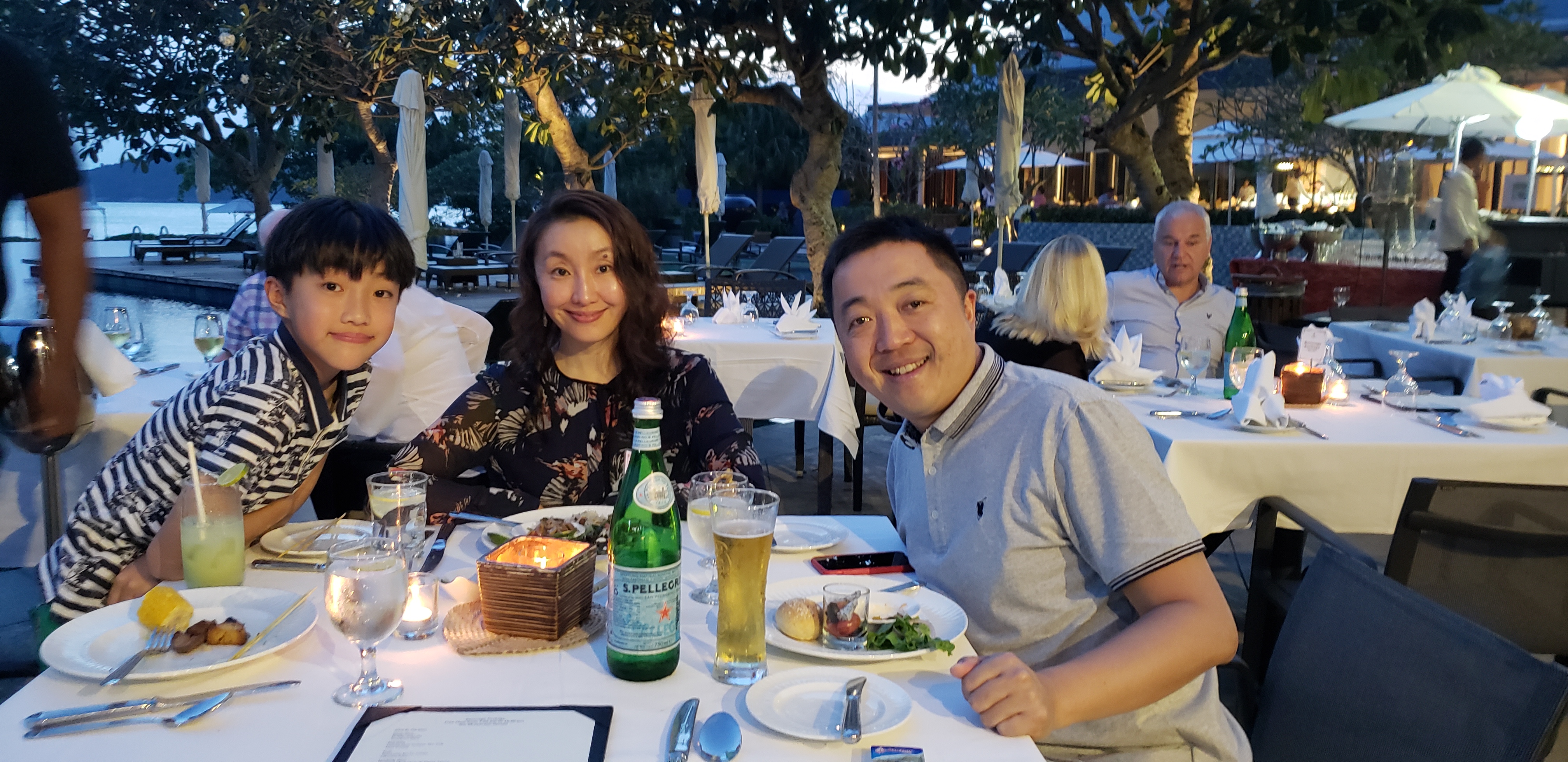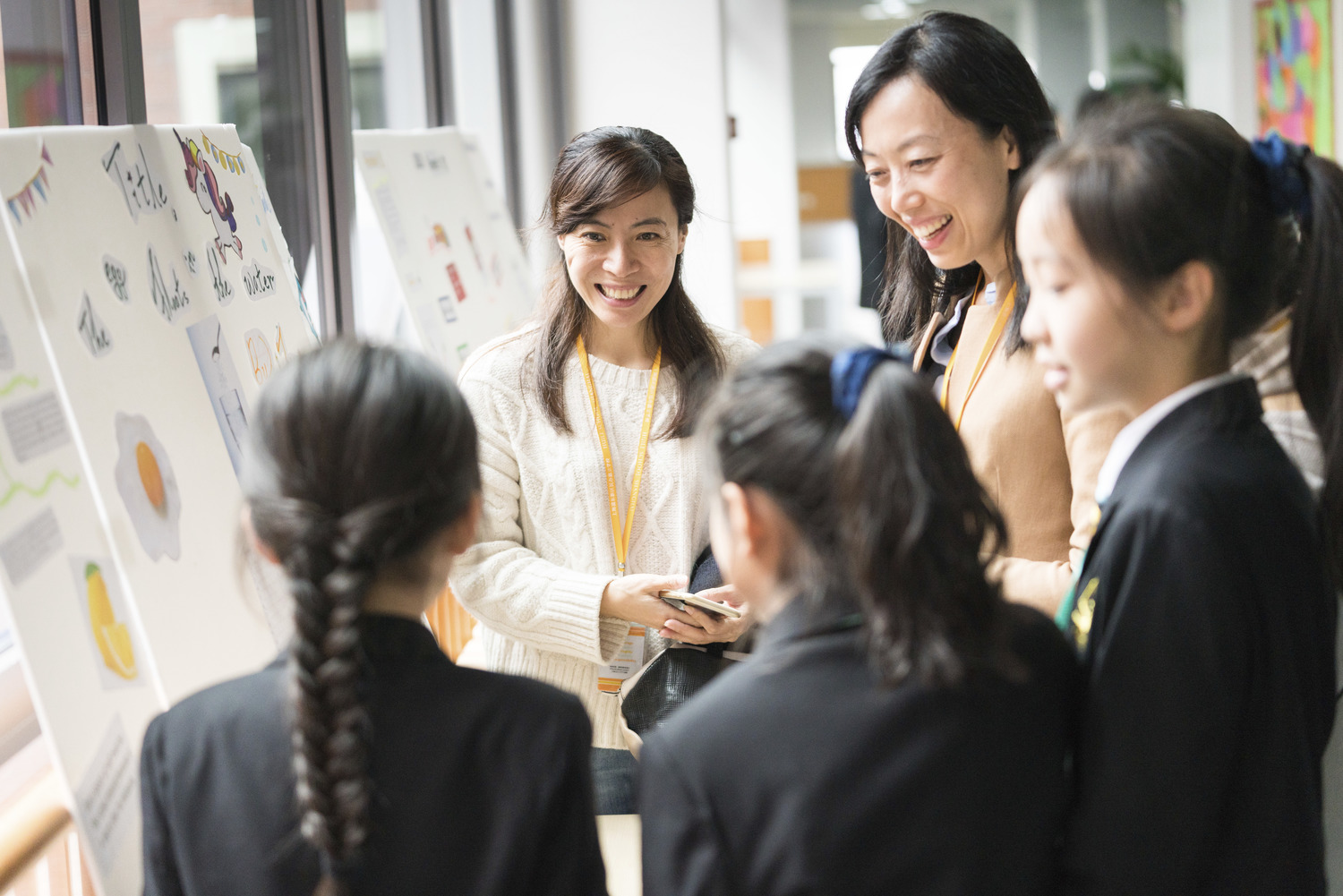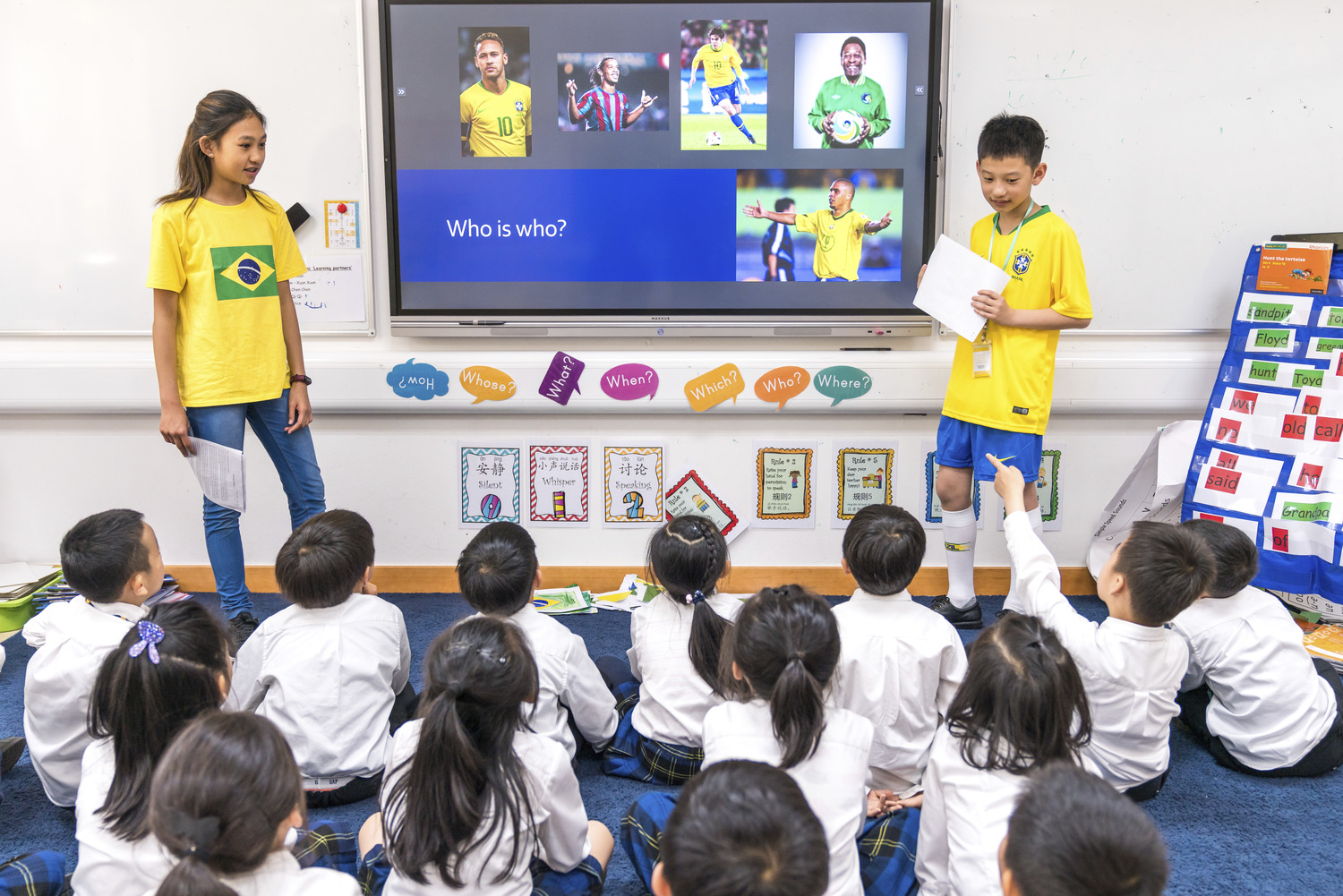
Among all the ways to get to know a school, it one of the best and most direct is to hear the thoughts and ideas of current parents. Hence, we interviewed Yinuo’s father so he could share with us his experience of selecting a school for his child and his perspective on education. After graduating from a renowned private school in the city, Yinuo is now a sixth grader at Hiba Junior High.

The interview was edited by Hiba marketing dept. 1. Hiba Academy Shanghai is a new school but one that is steeped in the rich heritage of Wellington College in England with over 160 years of history. Could you tell us why you wanted to choose Hiba? We did face some dilemmas when choosing a school for my child, considering that it was a relatively safe choice for him to continue his education at his previous school. If he were to follow its learning journey, we would have been reassured to clearly know his education path without making any potential mistakes. On the contrary, selecting Hiba was a risk because it was a new school at the time and had no graduates to prove the quality of its education. Nevertheless, Hiba was more inspirational in its proposed philosophy of education and presented what I thought was a better chance for my child to navigate an uncertain future.

Reflecting my own experience, ten years before 2005 was the PC Era when many traditional works could be done by PC. From 2005 to 2015, mobile devices replaced PCs and our lives went through earth-shaking changes. In 2015, the first rudimentary AI solutions started to emerge, overturning many of our deep-rooted thinking patterns. Right now, it seems impossible to predict what will happen in the next ten years. Hence, I intend to let my child grow in an open and inclusive environment where more possibilities exist. My feeling is that many schools push their pupils to overlook true learning and just do plenty of exercises repeatedly for the purpose of remembering the standardised answers and achieving good scores in the college entrance examination. In my view, this does not make full use of pupils’ stage of rapid development which is the prime time for them to thrive and study. This is a pity and a missed opportunity. In addition to the changing times, my decision to choose Hiba also came from my own work experiences. The multinational company that I serve has undergone rounds of reformation. In each reform, it removes or outsources a large number of repetitive works which can be done by computers because these works are not creative or related to strategic planning. We find that finance, human resources, IT and purchasing work with low functional value have been largely outsourced to places like India or Eastern European countries in light of their much lower labour costs. Moreover, law firms are gradually stopping their employment of young lawyers. This is because AI can finish a week-long research task done by a group of lawyers in just a few tenths of a second. The world is preparing for this change in workplace trends, not just China. Many young people graduating from top-ranking universities are not truly prepared for this change and they will meet severe, even cruel challenges. Therefore, I hope my child can enjoy and make use of a freer and more open space to study, one that can prepare him for the changes that will occur in the coming decades. 2.How did you make your decision when selecting a school? We participated in the open day held by Hiba, where I had plenty of in-depth discussions with principals and teachers. There are a few reasons that made me put Hiba on our candidate list straight away. Confidence is the first reason. Both the senior leadership team and the international and Chinese teachers all demonstrated great confidence. Secondly, we felt equally and mutually respected when we talked with Hiba teachers. Traditionally, many teachers in China give off a sense of distance and an attitude that strongly suggests that parents need to obey and agree with what they say. We also observed on the open day that pupils casually sat in the corridor before entering classes, while their eyes were fixed on their teachers and they attentively followed teachers’ instructions. These pupils were confident and energetic, eager to interact with their teachers.

From the leadership team, to teachers and pupils, they were all full of confidence and optimism. To some degree, it may have something to do with the Wellington brand which gives them reason to be confident. Besides, the confidence showed by the leadership and academic teams also comes from themselves, as they seemed to truly enjoy being in such a caring, loving community. This impressed me greatly. We also noticed that all teachers’ photos were posted on bulletin boards on campus. It is not difficult for schools to hire experienced Chinese teachers, but it is not the same case to employ international teachers of a similar standard. International teachers at Hiba are all recruited and tested at Wellington College in England, which sets a strict teaching qualification requirement for all teachers. According to the senior leadership’s introduction, excellent English teachers are inclined to choose bilingual schools because they believe that compared with international schools, teaching at a bilingual school enables them to better understand the local culture and benefits their teaching of multi-strategy approaches. This is the same situation with my company. My European and American colleagues enjoy working in China as they want to gain experience of cultural differences and even culture shock. It is helpful for them in terms of adapting to the globalised world. Thus, I truly believed that a confident school that emphasises the importance of hiring the right staff would be a good and suitable choice for us. 3. How has Yinuo settled into Hiba? Children need a transition period when entering a new school. Because of the different learning modes and language environment, it may take a long time for parents to track and understand their level of academic progress. However, even from an early stage, we clearly saw his positive changes in terms of mental attitude and his overall character once he had joined Hiba. Parents also need some time to get used to the transition. We tried our utmost to create a better environment for independent learning at home for our child. Although this process may not have always run smooth, we do not regard it as a big problem. 4. Do you think Hiba is markedly different from Yinuo’s previous schools? To be honest, my overall communication with teachers is less frequent than in his previous school. This is actually a kind of liberation for parents. We had so many WeChat groups before. It seemed that we communicated anywhere and at any time. Initially it took us some time to get used to Hiba’s style because we had to switch from using WeChat to email for communication. Hiba’s teachers put most of their efforts into their teaching. They try to solve pupils’ problems through face-to-face communication and emails are used for more formal and important matters. Accordingly, teachers do not need to spend so much time on managing relationships with parents, something I completely understand and acknowledge. However, the school has rightly established many channels to let parents know how things are going on with their children at school. Another big change is the always open and energetic Hiba community, which often holds so many activities that we can hardly participate them all because of our limited spare time. Parents can take part in parent workshops, which are frequently held sessions where teachers share their educational philosophy and invite feedback. Even if we could not join all of these events in person, we can always get outlines of the sessions shared in the Week Ahead. The school has many channels to tell us what is happening on campus.

Hiba School also has a house system for Junior High and each house is led by a housemaster or housemistress who sends regular emails to parents, telling us about our children’s updates. If necessary, they conduct one-on-one communication with us. I think this is a pretty good system. The house system also enables pupils to engage in campus life wholeheartedly, regardless of their year group and age. This kind of involvement can improve their leadership ability while motivating them to be role models.

House points also play an important role in school’s house system. Pupils put their whole hearts into all types of evens to win house points. It has become a positive incentive method as pupils care greatly about their house’s honour. House points also strengthen inter-house relations as well as pupils’ connections with their own housemates. Teachers have different approaches to how they give pupils’ house points. While some are cautious and their points have much value, others may be generous, and either way pupils can be motivated to do their best. This also leads to pupils learning independently, something that an essential lifelong habit for them to cultivate. 5. Do you have any expectations about your child’s future? I hope that what he aims to accomplish in the future will be good for humankind. Many Hiba parents that I know all expect that their children will grow to do something meaningful to them. This is to be encouraged as long as it is valuable for both the child and the wider world. If he can think independently, understand what he wants to do and spare no effort to achieve his goals, I will not worry about him and will give him freedom to spread his wings. I will always stand by him if he has clear, reasonable life goals and faces any challenges with a positive mental attitude. This is why we chose to leave a relatively safe and stable educational environment to step into an uncharted world. We attach great importance to developing his independent thinking. No matter how the world changes in the future, if he knows what his life goals and ambitions are, I am confident that he will achieve them.